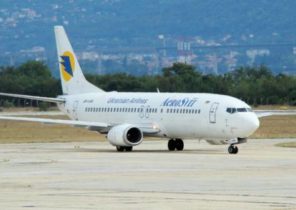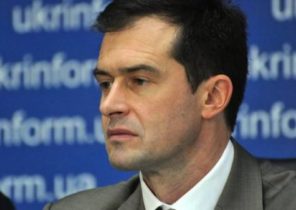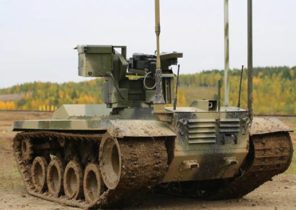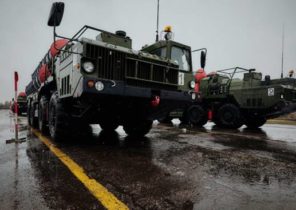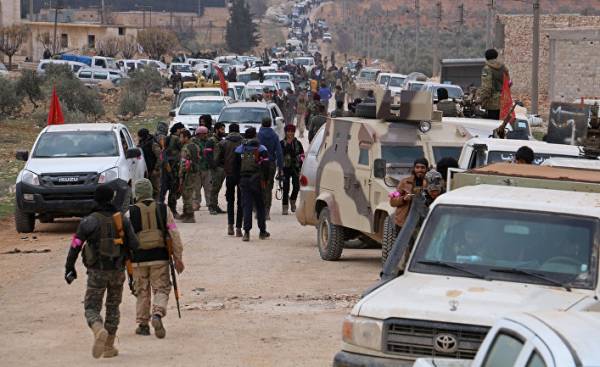
Everything about Aleppo, has always had great strategic importance. However, in the last month, the battle for al-Bab became almost more important. The city became the last major stronghold of the ISIL in the governorate, is a kind of test, “careful arrangements” between Damascus and Ankara, with the active participation of Russia and less active but still important influence of Iran. Over there, the battle of al-Bab in a way that would satisfy all parties, and will pass the ISIL its position from Raqqa to Deir al-Zor will be resolved in the near future, which may be completely unpredictable.
In this period the events in al Bab pretend to be a turning point in the war against ISIS (banned in Russia — approx. lane) in the East of Syria. The fight against this extremist organization has long been the only point on which converge all the players on the Syrian scene. Despite the controversy on a range of other issues, the parties gather round the table under the name of “fighting terrorism”, where conditional agreements are starting to become real.
It is important to note that while capturing the most important fortified point of ISIL in the vicinity of Aleppo, there is an unprecedented implementation of security agreements that actively promote the most important countries involved in the Syrian process. Despite the fact that the history of Syrian-Turkish cooperation with Moscow’s mediation is not new, the scenario in which the unfolding recent events in El-Baba is a brand new course. The move, in which Tehran attaches to the bilateral Alliance between Russia and Turkey. Now the triangle becomes a “guarantor” of the agreements used for the scenes of hostilities, and Astana is presented as a platform where these actions can be approved. The fact that Jordan is excited to join this platform is important. However, it is understood that the participation of Jordan in the Syrian issue reflects the point of view of this country precisely to the extent that it reflects the point of view of London and Washington, which recently called for the Jordanian king. You also cannot overlook the role of Jordan in the East of Syria, namely on the southern sector of the Syrian-Iraqi border.
It seems that the success of any arrangements (declared or covert) is directly proportional to the recognition of their Damascus. Moreover, this recognition implies tacit consent as Tehran’s closest ally. The accession of the latter completes the triangle in Astana and plays an important role in addressing one of the most obvious problems in Syrian-Turkish relations. It is the lack of confidence in the stability of agreements between Moscow and Ankara regarding the operation “shield of the Euphrates”. The battle for al-Bab —a chance to see the first fruits of the above changes. The mechanism of “careful coordination” between the forces of “shield of the Euphrates” on the one hand and the forces of the Syrian army and its allies on the other were successful.
Despite the fact that during the operation “shield of the Euphrates” the allied forces failed to achieve significant progress in the battle for the Eastern part of the El-Baba, the intensification of hostilities in the region had a positive impact on the progress of the Syrian army in the South, depriving ISIS of an important resource — time. Further developments have again determined the progress of the army in this direction. Control was taken most of the territory North of the city. As a result, Syrian-Turkish “careful coordination” in El Bab areas controlled by ISIL was on the verge of a dense siege. But both sides, of course, celebrating success, despite the absence of official statements. Syrian sources are kept in review the details of the operation: one of them said “al-Akhbar” that “past military operations on all fronts was held in the framework of the fight against terrorism, and the struggle for the liberation of al-Baba also first and foremost in this context.”
Syrian source to a higher level confirmed that “the Syrian installation clear and understandable, and on the political and military levels”. He also added that “the eradication of terrorism is in the first place. This goal stood as in the previous operations, and in the battle of al Bab”.
The source confirmed that al-Baba was a coordination, but at the same time and did not categorically deny it. He tried to emphasize that “sometimes a common interest is a reference point for the beginning of significant changes on many issues”. In this case, the source confidently said about the position of Damascus against the “shield of the Euphrates”: “this operation is an illegal attack on Syrian territory”. In addition, “the most important thing that can be learned from the events after Aleppo, it is something that relations between Damascus and its allies have proven their strength and efficiency, and of course, that the result has been our desire to keep our relations, which have appeared not yesterday. It would be foolish to bet on something else”. These words came as a response to the question posed by “al-Akhbar” that did the Damascus decision to move away from Tehran with the aim to establish relations with the new US administration. After all, it will contribute to the strengthening of U.S. influence around the Syrian issue. It should be noted that in the last two months of the war in Syria has significantly reduced the U.S. contribution to the settlement process. But Syria is still open to the influence of America and its ongoing steps that could strengthen or undermine what has been achieved.
If we consider Turkey’s influence on Syrian armed groups as a compass that directs their actions, the compass can’t work without the blessing of America. Ankara’s position remains largely dependent on the guidance of Washington. It should be noted that El-Bab is a vital priority for the United States, in contrast to the two more complex and intricate issues related to the cities of raqqa and Deir ez-Zor.
The United States is always at the forefront in everything connected with Raqqa, they confidently lead the “international coalition”, acting in these areas hands “of the democratic forces of Syria.” Then it becomes clear why some dependent America armed groups in recent times was again in the spotlight of the media. For example, “Syrian elite forces” headed by the former head of the “opposition coalition” Ahmed Jarba (close to the Saudis).
Despite the fact that these “elite forces” there are no real achievements, some sources have begun to promote their role and capacity in the battles for Raqqa, considering these forces as an alternative or companion of the Syrian Democratic Forces (SDS) for a kind of “demographic balance”. In fact, the predominance of the Kurdish forces in SDS is still a problem for Turkey, and the stumbling block of America and Turkey in the Syrian issue. Recently SDS only watched the developments in al Bab from the outside, despite the great interest in this area as a site for the creation of a “Kurdish autonomy”. The situation would change radically if the agreement axis “Damascus — Moscow — Ankara” raised Raqqa and other important for the Kurds of the region located in the North —Manbij, Afrin or Shahbaa (all these areas were previously reclaimed SDS LIH).
In Sochi continued skirmishes between the forces of the SDS and its allies on the one hand and invading the territory by Turkish troops on the other. Kurdish sources confirmed to “al-Akhbar” that “the incessant Turkish attacks demonstrate the escalation of the conflict taking place in the context of the ongoing incursions into Syrian territory.” Fears of the Kurds on the protection of its territory and mixed with other fear: they don’t want Kurdistan became the arena of the Syrian-Turkish conflict. And any careless decision in this case could substitute a hand under the impact of the new U.S. administration in all aspects of the Syrian question, including Kurdish.

